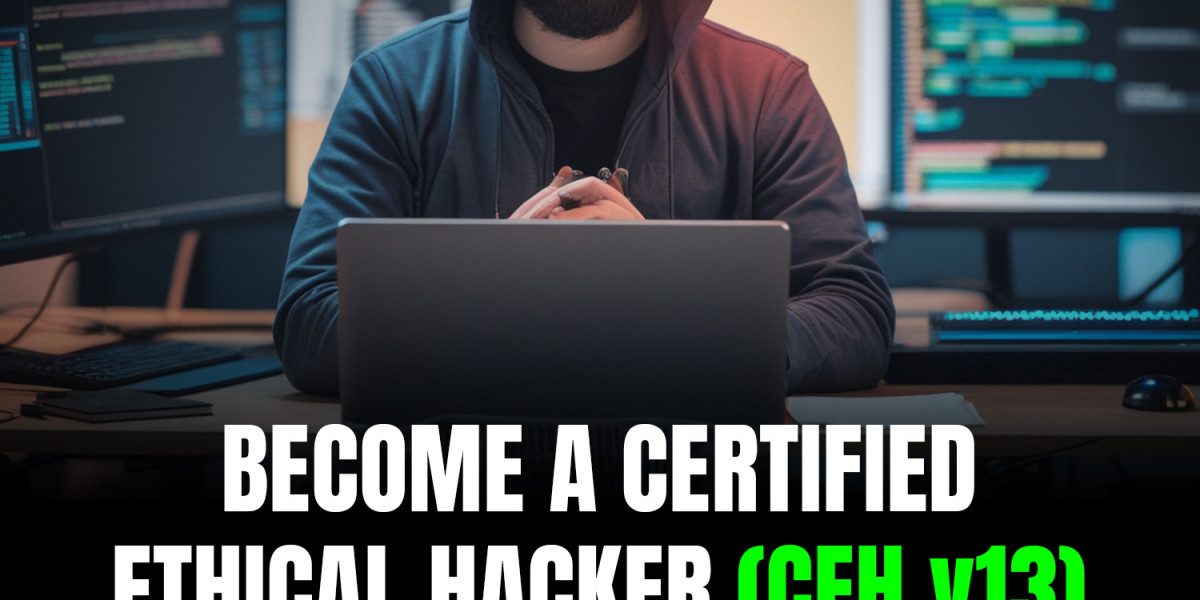What is CEH v13?
Certified Ethical Hacker v13 is an expert-level certification offered by EC-Council, which teaches students to identify and fix security vulnerabilities using the same tools and methods as the bad guys – but in a legal and ethical manner.
CEH v13 has been updated to accommodate the latest threats, attack vectors, and defense techniques. It includes:
1: 20 modules ranging from elementary to advanced ethical hacking subjects
2: Over 350 attack tools and technologies
3: Hands-on labs and practical use
4: Current coverage of new malware, cloud security, IoT threats, and more
Greater focus on MITRE ATT&CK framework and threat intelligence
Who Can Take the CEH v13 Course?
❓ Is Technical Background Required?
No, but it is useful.
Even though a technical background (e.g., in IT, networking, or programming) is helpful, it is not always needed. Many non-technical students have been successfully transitioned into the field of cybersecurity with the right training and hard work.
But basic knowledge of the following will ease your passage:
1: Operating Systems (especially Linux and Windows)
2: Computer Networks and TCP/IP
3: Basic programming/scripting (e.g., Python or Bash)
If you are totally new, you can take the introductory level courses like CompTIA Security+, or EC-Council's Essentials Series before going for CEH.
Why You Should Take CEH v13?
Worldwide Acceptance: Governments, businesses, and defense agencies around the world depend on CEH.
Hands-on Skills: Emphasizes hands-on skills with real-time labs.
Job Opportunities: Provides entry to career roles like Penetration Tester, Security Analyst, SOC Analyst, Vulnerability Assessor, and more.
Good Salary Potential: Certified professionals earn better.
In-depth Knowledge: Covers everything from reconnaissance to exploitation, and everything from malware analysis to cloud security.
Top Questions Answered
❓ Can I do CEH immediately after 12th or graduation?
Yes. Experience may be useful, but students right out of college or school can begin with entry-level cybersecurity courses first and then proceed to CEH.
❓ How long does it take to finish CEH v13?
The majority of students finish the course in 3–4 months based on previous experience and study schedule.
❓ Is CEH v13 sufficient to find employment?
CEH v13 is a good starting point for cybersecurity. To enhance employment opportunities, supplement it with practical experience, internships, or bug bounty challenges. You may also opt for advanced certifications such as OSCP later.
❓ What's the exam structure?
125 multiple-choice questions
4 hours in length
Passing score: Generally 60%–85% (varies by form of exam)
Real-World Training That Looks Like Real Attacks
What distinguishes CEH v13 is its applied method of learning. Rather than using theory exclusively, students learn through live cyber ranges, stage attacks in virtual environments, and navigate interactive labs that mirror real-world situations.
For instance, students learn to:
-Scan for open ports with advanced tools
-Attack misconfigured web servers
-Analyze and reverse malware
-Man-in-the-middle (MITM) attacks
-Privilege escalation and lateral movement
-This practical model makes the candidates job-ready right from day one.
Industry Recognition and Career Value
CEH certification is recognized by:
-Fortune 500 companies
-Government agencies, including DoD (Department of Defense)
-Cybersecurity consulting companies
-Managed Security Service Providers (MSSPs)
No matter if you are aiming for a career as a Penetration Tester, SOC Analyst, Threat Hunter, or even a Cybersecurity Consultant, CEH v13 proves your skills and makes you more credible to employers.
In addition, numerous recruiters consider CEH as a standard certification while filtering candidates for cybersecurity positions. Having a CEH can provide access to global opportunities and can also be a stepping stone for higher-level certifications.
CEH v13: Closing the Gap Between Knowledge and Action
Cybersecurity is no longer the prerogative of big businesses or government organizations — it's a matter of urgency for startups, hospitals, banks, and even schools. As cyberattacks become more common and sophisticated, businesses now employ experts who can spot vulnerabilities ahead of time so attackers can't exploit them. CEH v13 is at the center of this crusade as it empowers ethical hackers to think like attackers and act like defenders.
The curriculum now incorporates the current threat scenarios. From ransomware attacks and misconfigurations of the cloud to IoT device and supply chain software vulnerabilities, CEH v13 prepares students for actual cybersecurity cases. Incorporation of the MITRE ATT&CK framework, for example, allows experts to gain a greater insight into the tactics, techniques, and procedures (TTPs) used by adversaries and thus perform security assessments far more strategically.
Career Pathways Following CEH v13
Once you finish CEH v13, several job options are available. They are:
1: Penetration Tester
2: Security Operations Center (SOC) Analyst
3: Threat Intelligence Analyst
4: Red Team Specialist
5: Vulnerability Assessor
6: Cybersecurity Consultant
All these roles are in great demand across industries and come with good salary packages and ongoing growth prospects. As organizations are adopting hybrid and remote work cultures, the need for cybersecurity professionals is through the roof, particularly those with ethical hacking certifications that confirm their practical skills.
CEH is also a good starting point for higher-level certifications, including:
1: EC-Council's CEH (Practical)
2: Certified Penetration Testing Professional (CPENT)
3: Offensive Security Certified Professional (OSCP)
4: Certified Information Systems Security Professional (CISSP)
These higher-level certifications provide entry into senior-level positions, e.g., Lead Penetration Tester, Cybersecurity Architect, or Red Team Lead.
The Ethical Hacker's Responsibility
With great abilities comes great responsibility. CEH v13 also emphasizes the ethical and legal aspects of hacking. Certified professionals are taught not only to discover security vulnerabilities but to responsibly report them, assist organizations in resolving the issues, and ensure data privacy and integrity. This is what differentiates ethical hackers from cybercriminals.
As a CEH-certified expert, you are required to follow a strict code of ethics, learn compliance regulations (such as GDPR, HIPAA, and PCI-DSS) and maintain the trust in you from clients or employers.
CEH v13 and the Wider Cybersecurity Environment
Cybersecurity doesn't exist in a vacuum. CEH v13 also instructs you about how ethical hacking integrates with wider security approaches such as:
1: Defense-in-Depth
2: Incident Response
3: Threat Hunting
4: Risk Management
5: Zero Trust Architecture
By knowing where your abilities place you in an organization's security landscape, you are no longer merely a hacker — you are an integral part of enterprise security resilience.
Conclusion
Whether you are a student, IT professional, or career changer, CEH v13 is a strong credential to start your journey into the world of cybersecurity. With increasing demand for ethical hackers and security professionals, now is the ideal time to venture into this profession.
No tech experience? No worries – the right attitude, training, and curiosity can help anyone get into cybersecurity. CEH v13 is your gateway to a safe, high-impact career.





